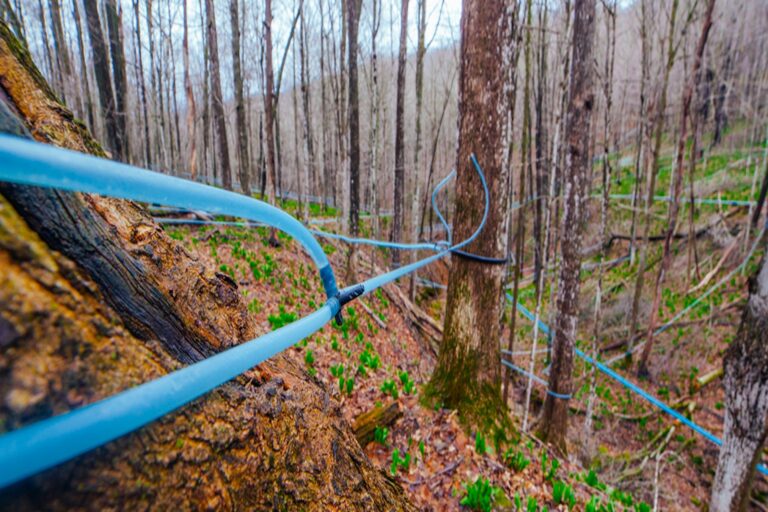Not all agroforestry projects are funded equally, suggests a new comment paper published in Nature Climate Change. Integrating crops into existing forests is an often overlooked agroforestry method to store carbon while creating sustainable livelihoods, according to the authors. The article, published in late May, draws on literature and real-world examples of the lesser-known practice of mixing crops with standing trees. The authors define two categories of methods as “forest-based” versus “field-based” agroforestry. Forest-based refers to integrating crops into existing forests and ecosystems, whereas field-based refers to adding trees to pasturelands or croplands. The latter is not only much more common, but also much better funded, the authors report, in part because of misconceptions that forest-based methods lead to deforestation. While this is sometimes true in tropical environments with crops like coffee or cacao, forest-based agroforestry can actually help restore temperate ecosystems, the authors say. “You have to think differently about tropical and temperate forests,” said Karam Sheban, the lead author and an agroforestry doctoral candidate at the Yale School of the Environment and New York Botanical Garden. “We can’t just export this idea we have about cutting down rainforest to grow coffee into temperate systems.” The agroforestry gap For Sheban, who has worked in temperate agroforestry systems for a decade, it was obvious that there was a bias toward field-based agroforestry from the very beginning of his career. Straight out of college, he volunteered for AmeriCorps with the NGO Rural Action in Ohio’s Appalachian region, where communities used agroforestry…This article was originally published on Mongabay
Search
Recent Research
Want your Blog Article featured on our website?
Research
Featured News
Explaining Katsina’s Massive Leap to 2nd Position in the 2025 Climate Governance Ranking
In 2024, during the first edition of the Subnational Climate Governance Performance Rating and Ranking,
COP30: Firm to connect institutions with international climate finance opportunities
SISTME, a climate change and biodiversity conservation consulting firm based in Argentina, has offered to
From resistance to planetary governance, Indigenous women redefine global climate action
While world leaders negotiate behind closed doors in the Blue Zone of COP30, Indigenous Women
Sahara Group Foundation launches 16th Sahara Go Recycling Hub to boost environmental sustainability, economic empowerment
Sahara Group Foundation, the corporate social impact arm of Sahara Group, has commissioned its 16th
Climate finance is the lifeblood of climate action – Simon Stiell at COP30
Remarks delivered by UN Climate Change Executive Secretary, Simon Stiell, at the third High-Level Ministerial
UNDP, REA, GEF commission Plateau solar mini-grid to power agricultural value chains, empower rural communities
The United Nations Development Programme (UNDP), in partnership with the Rural Electrification Agency (REA) and
COP30: Africa urges world leaders to turn pledges into action
Africa has called on the world leaders to turn their pledges into action regarding the
Thousands join global marches calling on govts at COP30 to deliver climate justice
An estimated 30,000 people marched through the Brazilian city of Belém on Saturday, November 15,


